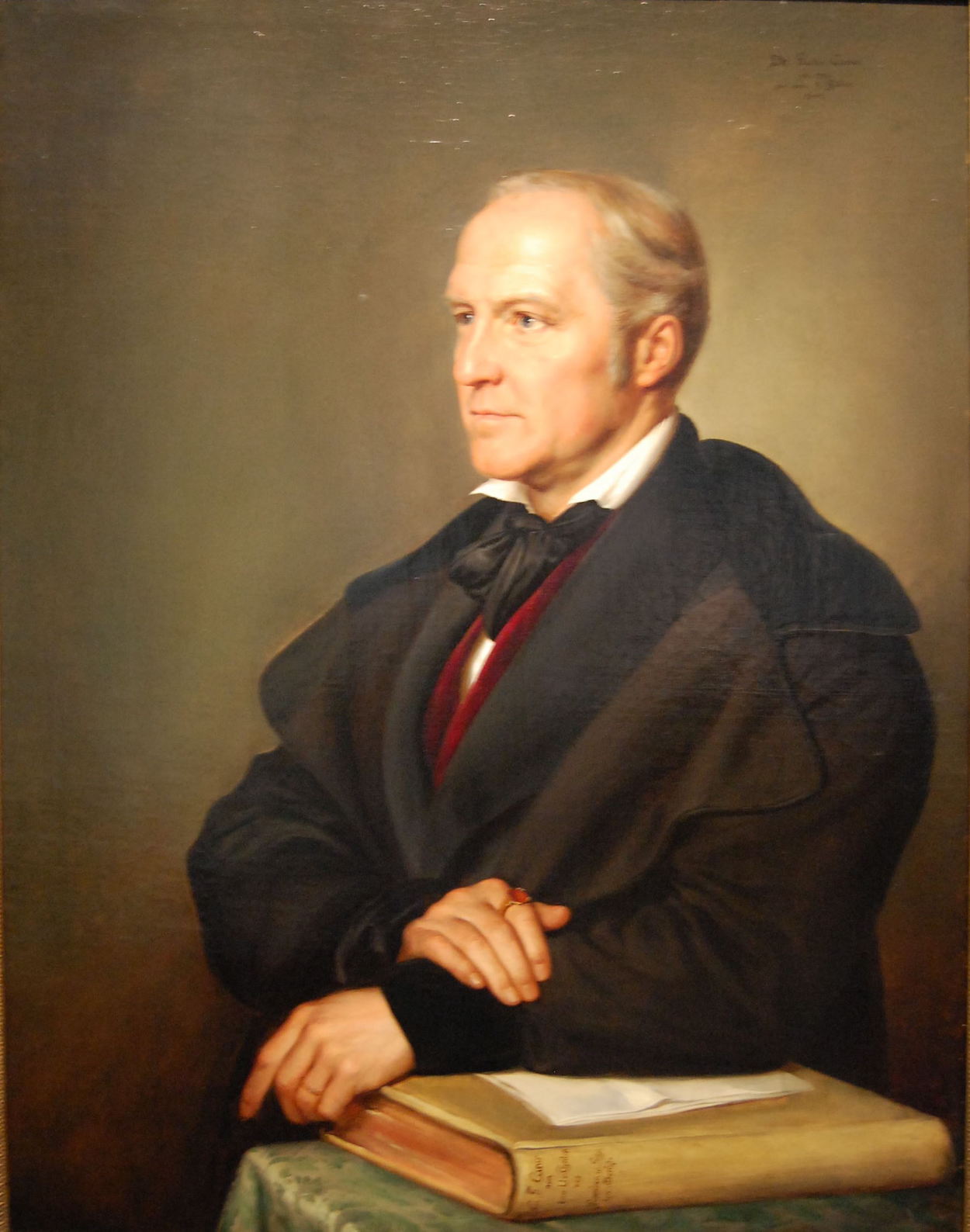Despite its small scale, Morning on the Elbe is widely regarded as a masterpiece by Carl Gustav Carus, a German physiologist, a painter who studied under Caspar David Friedrich, and a friend of the writer Johann Wolfgang Goethe. The composition draws on the recurring motif of the window, a theme borrowed from his friend and mentor, Caspar David Friedrich. A lone figure, seen from behind, gazes out from the darkness of the boat’s interior toward the sunlit countryside, evoking a sense of longing and contemplation.
Carus positions the viewer within the lower section of a gondola traveling along the Elbe, heading toward the distant, bluish silhouette of Dresden. Rendered with architectural precision, the city serves as both a literal destination and a symbolic representation of the Romantic ideal of an unattainable, perfect place. The carefully chosen framing enhances the intimacy of the moment while emphasizing the city’s significance.
Carus employs dramatic contrasts of light and shadow—juxtaposing the dark hull of the boat against the luminous natural landscape—to explore their perceptual effects. As a Romantic painter, physician, and philosopher of nature, he approached his art with a holistic and scholarly interest in natural phenomena. Here, he invokes the age-old metaphor of the boat journey, using it to reflect on the relationship between humanity and the wider world.
Have a calm Saturday!
P.S. Check out our Sea, Ships & Beaches 50 Postcards Set for more maritime inspiration!
P.P.S. Throughout centuries, rivers have inspired numerous artists. Take a journey through rivers in art with us!

_-_Google_Art_Project.jpg)
 Carl Gustav Carus
Carl Gustav Carus